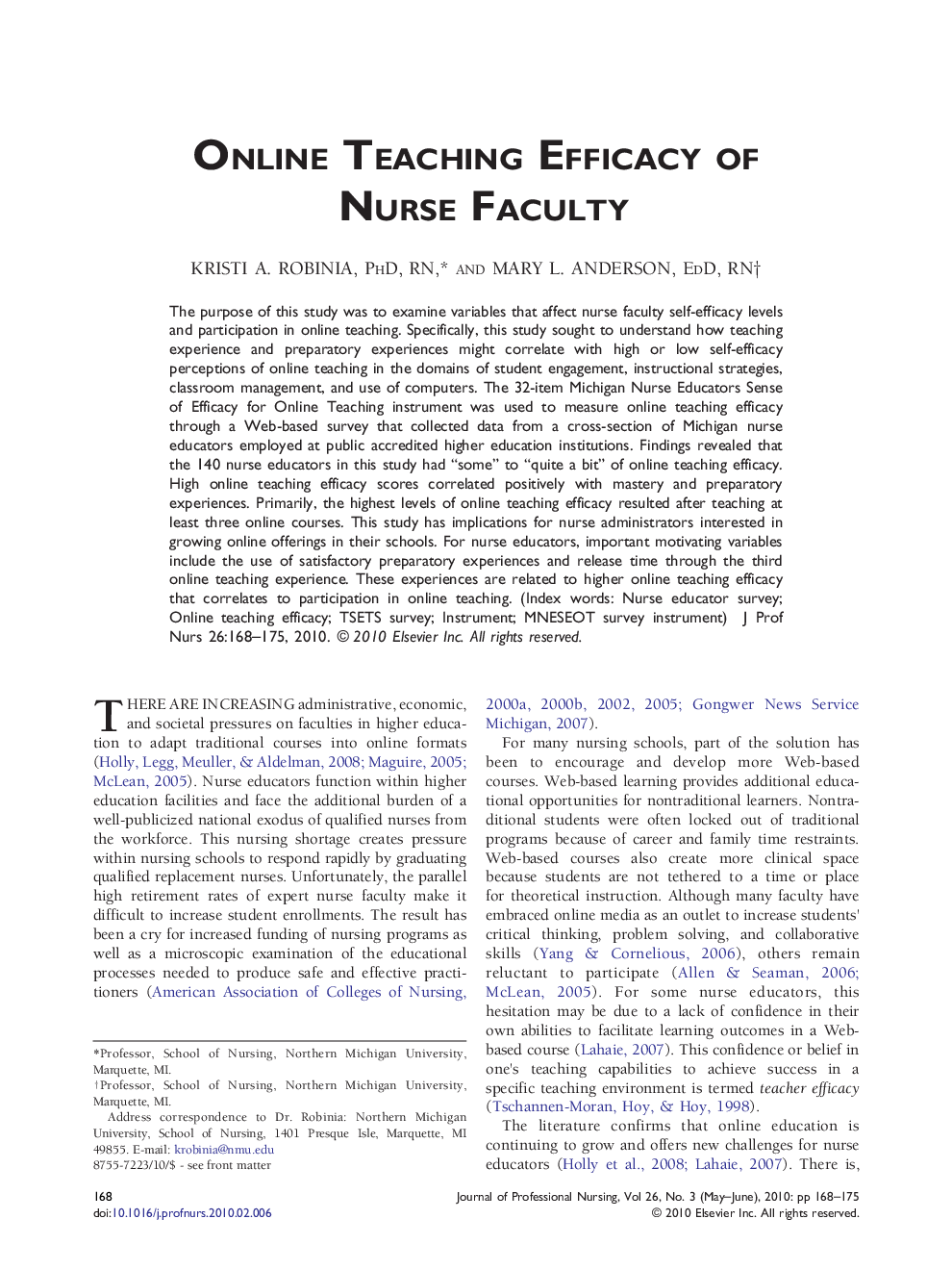| Article ID | Journal | Published Year | Pages | File Type |
|---|---|---|---|---|
| 2671460 | Journal of Professional Nursing | 2010 | 8 Pages |
The purpose of this study was to examine variables that affect nurse faculty self-efficacy levels and participation in online teaching. Specifically, this study sought to understand how teaching experience and preparatory experiences might correlate with high or low self-efficacy perceptions of online teaching in the domains of student engagement, instructional strategies, classroom management, and use of computers. The 32-item Michigan Nurse Educators Sense of Efficacy for Online Teaching instrument was used to measure online teaching efficacy through a Web-based survey that collected data from a cross-section of Michigan nurse educators employed at public accredited higher education institutions. Findings revealed that the 140 nurse educators in this study had “some” to “quite a bit” of online teaching efficacy. High online teaching efficacy scores correlated positively with mastery and preparatory experiences. Primarily, the highest levels of online teaching efficacy resulted after teaching at least three online courses. This study has implications for nurse administrators interested in growing online offerings in their schools. For nurse educators, important motivating variables include the use of satisfactory preparatory experiences and release time through the third online teaching experience. These experiences are related to higher online teaching efficacy that correlates to participation in online teaching.
